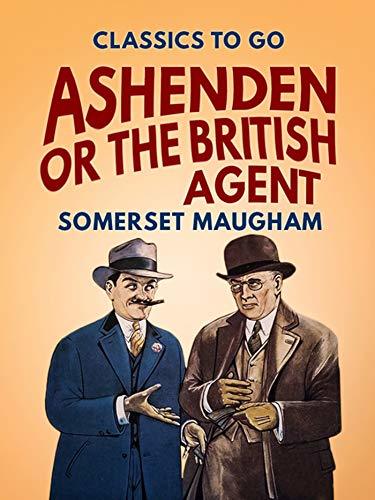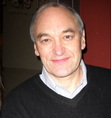The father of the spy novel
 It's always pleasant to discover an author much loved by others who you have managed to overlook yourself. I thank my parents for sharing their late life enthusiasm for the prolific Victorian novelist, Anthony Trollope. After they passed away, I spent a couple of years devouring the Trollope literary canon, beginning with his Chronicles of Barsetshire series about the vicious, back-biting politics of an English cathedral city, and moving on to his "political novels." For readers seeking an introduction to Trollope, I recommend starting with Barchester Towers. "You have before you one of the delights of life," wrote the economist John Kenneth Galbraith in a 1983 preface to the novel, explaining the attraction of Trollope for the John F. Kennedy set. (Students of the Cuban missile crisis will remember Kennedy's use of a "Trollope ploy"--the skillful exploitation of a romantic misunderstanding--to negotiate with Nikita Khrushchev, his opposite number in the Kremlin.) As Kennedy and other stressed-out politicians have discovered, a Trollope novel is a wonderful form of relaxation.
It's always pleasant to discover an author much loved by others who you have managed to overlook yourself. I thank my parents for sharing their late life enthusiasm for the prolific Victorian novelist, Anthony Trollope. After they passed away, I spent a couple of years devouring the Trollope literary canon, beginning with his Chronicles of Barsetshire series about the vicious, back-biting politics of an English cathedral city, and moving on to his "political novels." For readers seeking an introduction to Trollope, I recommend starting with Barchester Towers. "You have before you one of the delights of life," wrote the economist John Kenneth Galbraith in a 1983 preface to the novel, explaining the attraction of Trollope for the John F. Kennedy set. (Students of the Cuban missile crisis will remember Kennedy's use of a "Trollope ploy"--the skillful exploitation of a romantic misunderstanding--to negotiate with Nikita Khrushchev, his opposite number in the Kremlin.) As Kennedy and other stressed-out politicians have discovered, a Trollope novel is a wonderful form of relaxation.More recently, I have been binging on the novels and short stories of Somerset Maugham. I have just finished Of Human Bondage, (first published 1915) about uncontrollable passion, addiction, and unrequited love. It is widely considered Maugham's masterpiece, and includes many wonderful passages, but can be painful to read because of all the humiliations inflicted on the narrator. (Spoiler alert: he finds happiness in the end.) I actually preferred a much less celebrated book, Ashenden or the British Agent, (1927) which draws on Maugham's own experiences working for British intelligence in World War I in Switzerland and Russia. Connoisseurs of spy literature rightly credit Maugham with being the father of the modern espionage novel. Long before Graham Greene and John Le Carre, Maugham captured the everyday drudgery and moral equivocations of the spy business that is the complete opposite of the glamorous world depicted by the likes of Ian Fleming.
The highlight of Ashenden, for me at least, were the chapters on Russia during the tumultuous period between the February and October 1917 revolutions. (Even though I am a student of Russian history, I had forgotten, or never knew, that Maugham was dispatched on a hopeless mission by American intelligence to try to keep Russia in the war.) I related to his experience on the Trans-Siberian railroad, "lost in the immensity of Russia and very lonely." There is a superb description of the British ambassador to Petrograd, Sir George Buchanan (disguised as "Sir Herbert Witherspoon"), as a coldly brilliant diplomat and epitome of the English aristocracy. Invited to dinner by the ambassador in his palatial residence, Ashenden/Maugham is "received with a politeness to which no exception could be taken, but with a frigidity that would have sent a little shiver down the spine of a polar bear."
Although Maugham was one of the most widely read British authors of his day, he has been relegated to the second rank of English literature by snobbish critics. For me, however, his books are much more enjoyable than the dense "stream of consciousness" novels of writers like James Joyce and Virginia Woolf now regarded as literary classics. Spurned by the modernists as a literary hack and mediocre writer, Maugham created characters as unique and memorable in their own way as the characters of Charles Dickens. He had another quality too. Once you start a Maugham novel, you feel compelled to keep turning the pages until you reach the end. Feel free to disagree, but I certainly can't say that about the novels of Joyce or Woolf. I abandoned Portrait of the Artist as a Young Man (1916), generally regarded as much more "accessible" than Ulysses (1922), half-way through, and have had similar difficulty with both Mrs Dalloway (1925) and To The Lighthouse (1927). If readability is a measure of great literature, then surely Maugham deserves a place near the very top, along with his Victorian forebear, Anthony Trollope.
Published on March 22, 2021 10:13
No comments have been added yet.



